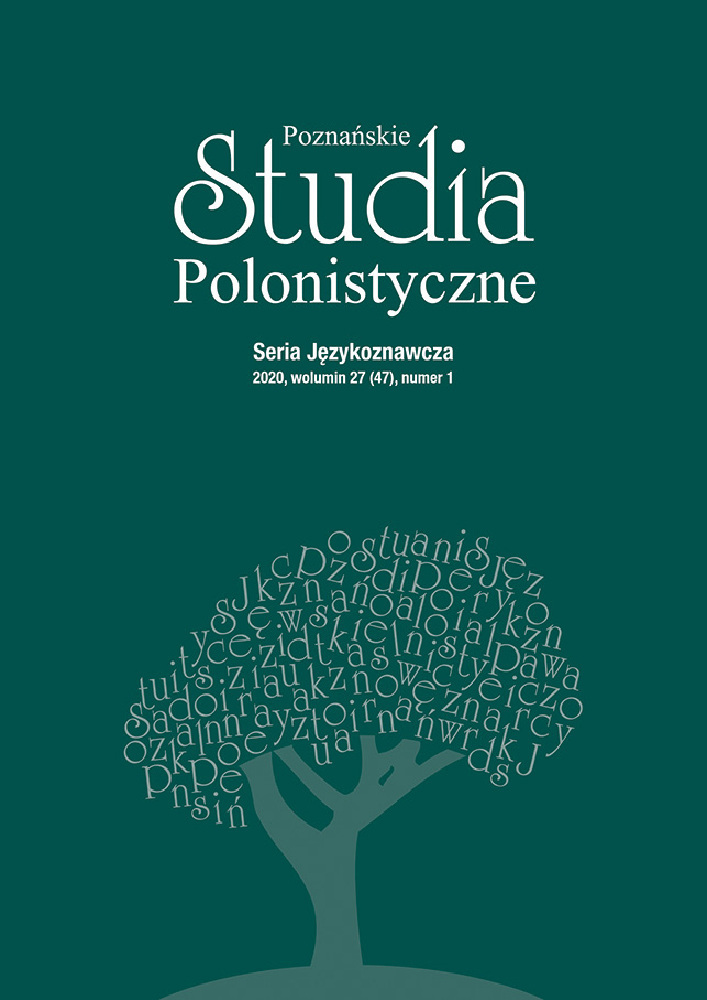Abstract
The aim of the article is to analyse the normative concept of guilt currently adopted by the Polish legislator from the semantic perspective. Under Polish law, imputation of a perpetrator of a criminal act is a prerequisite for incurring criminal liability. The perpetrator who cannot be blamed is not punishable and is not treated as a criminal. The legislator distinguishes two forms of guilt: intentional, which is synonymous with intention, and unintentional. Both intentional and intentional guilt are subject to further gradations in the Act, which often raises serious difficulties in judicial practice. In the article, the author strives to formulate the linguistic postulates de lege ferenda, which helps avoid interpretation doubts by changing the wording of language related to the construction of guilt in criminal law.
References
Bańko Mirosław (2007), Słownik języka polskiego, t. 1–6, Wydawnictwo NaukowebPWN, Warszawa.
Bojarski Tadeusz (2015), Środki zabezpieczające, w: tenże, Kodeks karny. Komentarz, Wolters Kluwer Polska, Warszawa.
Borucka-Arctowa Maria (1967), O społecznym działaniu prawa, Wydawnictwo Naukowe PWN, Warszawa.
Długosz-Kurczabowa (2016), Wielki słownik etymologiczno-historyczny języka polskiego, Wydawnictwo Naukowe PWN, Warszawa.
Gruza Ewa (2017), Psychologia sądowa dla prawników, Wolters Kluwer Polska, Warszawa.
Kulik Marek, Wąsek Andrzej (2016), Strona podmiotowa czynu. Umyślność i nieumyślność, w: Kodeks karny. Komentarz, red. Marian Filar, Wolters Kluwer Polska, Warszawa, s. 60–65.
Kozłowska-Kalisz Patrycja (2019), Zasady odpowiedzialności karnej, w: Kodeks karny. Komentarz, red. Marek Mozgawa, Wolters Kluwer Polska, Warszawa, s. 25–68.
Lachowski Jerzy (2018), Niepoczytalność, poczytalność ograniczona. Warunki odpowiedzialności karnej, w: Kodeks karny. Komentarz, red. Violetta Konarska-Wrzosek, Wolters Kluwer Polska, Warszawa, s. 201–209.
MacIntyre Alasdair (2019), Krótka historia etyki, Wydawnictwo Naukowe PWN, Warszawa.
Podczaszy Joanna (2015), Ignorantia iuris nocet. O powszechnej nieznajomości prawa, „Roczniki Nauk Społecznych”, nr 4, s. 33–42.
Wołodkiewicz Witold (2009), Europa i prawo rzymskie. Szkice z historii europejskiej kultury prawnej, Wolters Kluwer Polska, Warszawa.
Zoll Andrzej (2016), Zasady odpowiedzialności karnej, w: tenże, Kodeks karny. Część ogólna. Tom I. Komentarz do art. 1–52, Wolters Kluwer Polska, Warszawa.
License
Authors
The Author declares that they are entitled to personal and property (material) copyrights to their work published in “Poznańskie Studia Polonistyczne. Seria Językoznawcza”, and that these rights are not limited by the terms of Author’s agreement. The Author warrants the originality, authorship, and sole ownership of all rights to the Work, and affirms that they have the right to grant all kinds of licenses hereinabove without infringing on the intellectual property rights of any third party, including personal rights.
The Author(s) retains copyright to their article and the right to freely dispose of the work, granting Adam Mickiewicz University in Poznań a non-exclusive, royalty-free licence under the Attribution-NoDerivatives 4.0 International (CC BY-ND 4.0) Creative Commons licence to use the Work without territorial restrictions for an indefinite period in the fields of use designated in the Author’s agreement.
Users
Interested Internet users are entitled to use works published in „Poznańskie Studia Polonistyczne. Seria Językoznawcza” since 2016 under the following conditions:
- attribution - obligation to provide, together with the distributed work, information about the authorship, title, source (link to the original work, DOI) and the license itself.
- no derivatives - the work must be preserved in its original form, without the author's consent it is not possible to distribute the modified work, such as translations, publications, etc.
Copyrights are reserved for all texts published before 2016.
Other
Adam Mickiewicz University in Poznań retains the right to the journal as a whole (including its layout, graphic design, title, cover design, logo and more).
